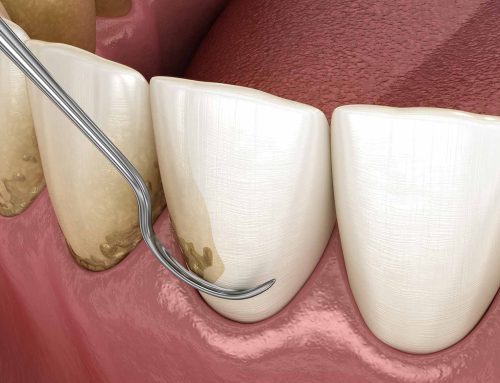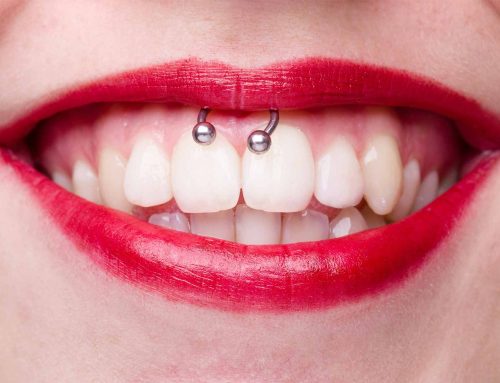Toothaches can be very painful, so you should take them seriously. Among the most common dental ailments, tooth abscesses and gum abscesses can lead to serious oral health problems.
Discover the most frequent causes of dental abscesses, the symptoms you should be on the lookout for and the available treatments to alleviate the pain and prevent further complications.
What is a dental abscess?
A dental abscess is a bacterial infection that develops inside the tooth or in the soft tissues surrounding it. Most of the time, it develops between the teeth and gums. An abscess presents in the form of a swollen pocket filled with pus and can cause intense pain and sensitivity in the affected tooth. When the infection isn’t in the tooth, itself, it’s called a periodontal abscess, which is an abscess in the gums or near the jaw.
What are the symptoms of a dental abscess?
A dental abscess can present varied symptoms. These will depend on the type of infection (tooth abscess or periodontal abscess), its severity and its location.
- Pain in the teeth and gums
- Difficulty chewing
- Swelling in the gums and face
- Fever and nausea
- Abnormally red gums
- Persistent bad breath
Is it possible to have a dental abscess without pain?
Sometimes, a dental abscess will be painless. In certain cases, the infection may be located in an area with very few nerves, resulting in minimal or no pain. However, this doesn’t mean that you shouldn’t seek treatment for it. Even in the absence of pain, the infection could continue to spread, causing further damage. That’s why regular visits to your dentist are so important!
What are the causes of a dental abscess?
Bacterial infections are responsible for most dental abscesses. These infections can occur as a result of various conditions, including the following:
- An untreated cavity that infects the pulp and blood vessels of the tooth
- A shock or trauma to the tooth that damages the pulp
- Gum disease that causes deep pockets between the tooth and gums that become filled with bacteria and pus
- An infected wisdom tooth
- A compromised immune system
How to care for a tooth abscess or periodontal abscess
Regardless of the cause of your dental abscess, you should seek prompt treatment to avoid any complications. Depending on your situation and the severity of your infection, your dentist may suggest an appropriate treatment, such as the following:
- Draining the abscess if it’s small
- A root canal if the infection is in the dental pulp
- Antibiotics to kill the bacteria
- A tooth extraction if the infection is very serious
What to do in the case of a ruptured dental abscess
If your dental abscess ruptures, there’s no reason to panic; however, you should still act quickly. Rinse your mouth out with warm, salty water to reduce the pain and inflammation and prevent the infection from spreading. You can also take over-the-counter analgesics if the pain is severe. Finally, contact your dentist without delay to schedule a consultation.
Are you suffering from a toothache?
Take charge of your oral health by contacting the dedicated team at Clinique Dentaire Charles Trottier. If you’re suffering from a dental abscess, you’ll receive a precise diagnosis and appropriate treatment options so you can once again enjoy optimal oral health!
References: DENTALCARE.CA. Dental abscess.





